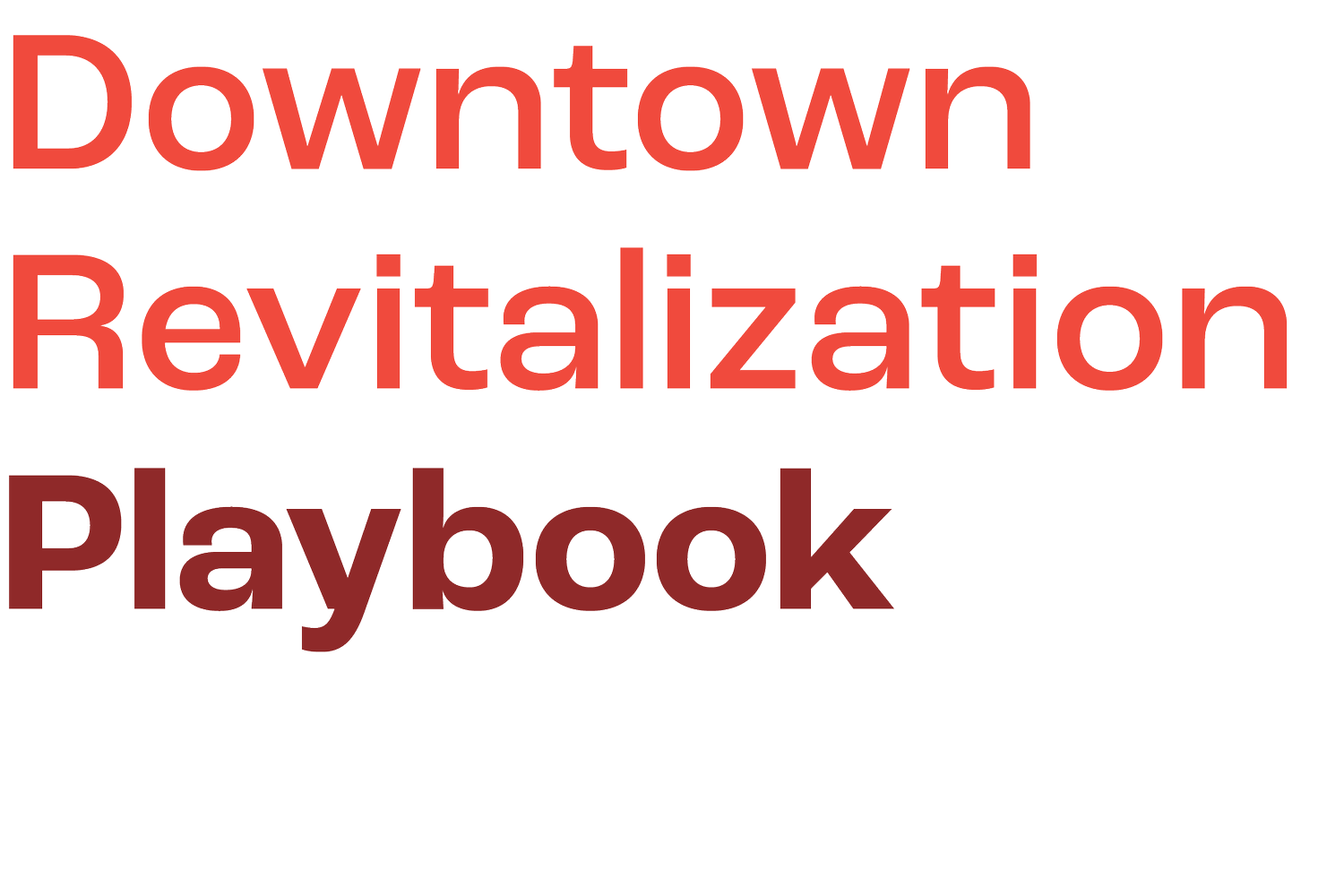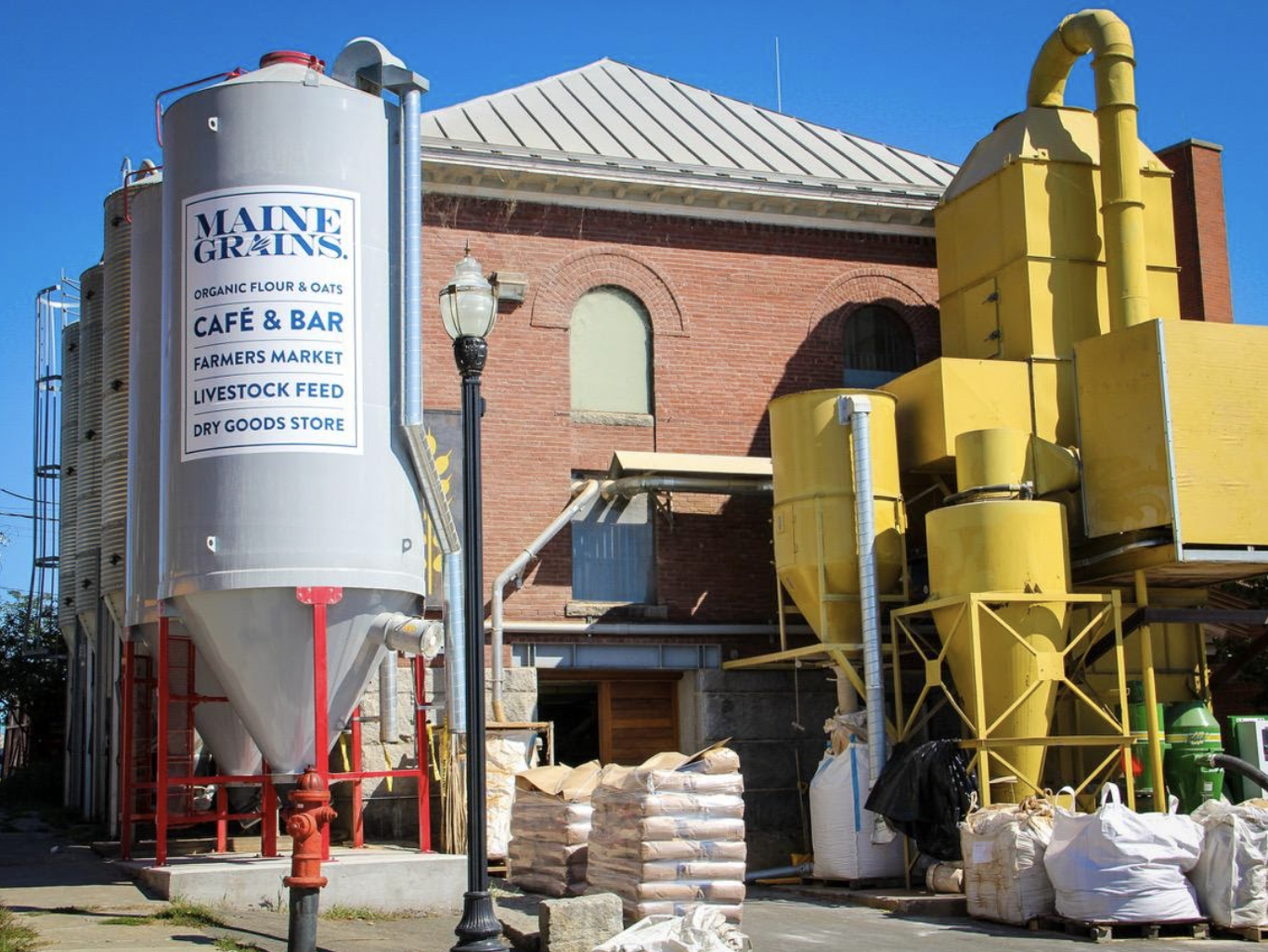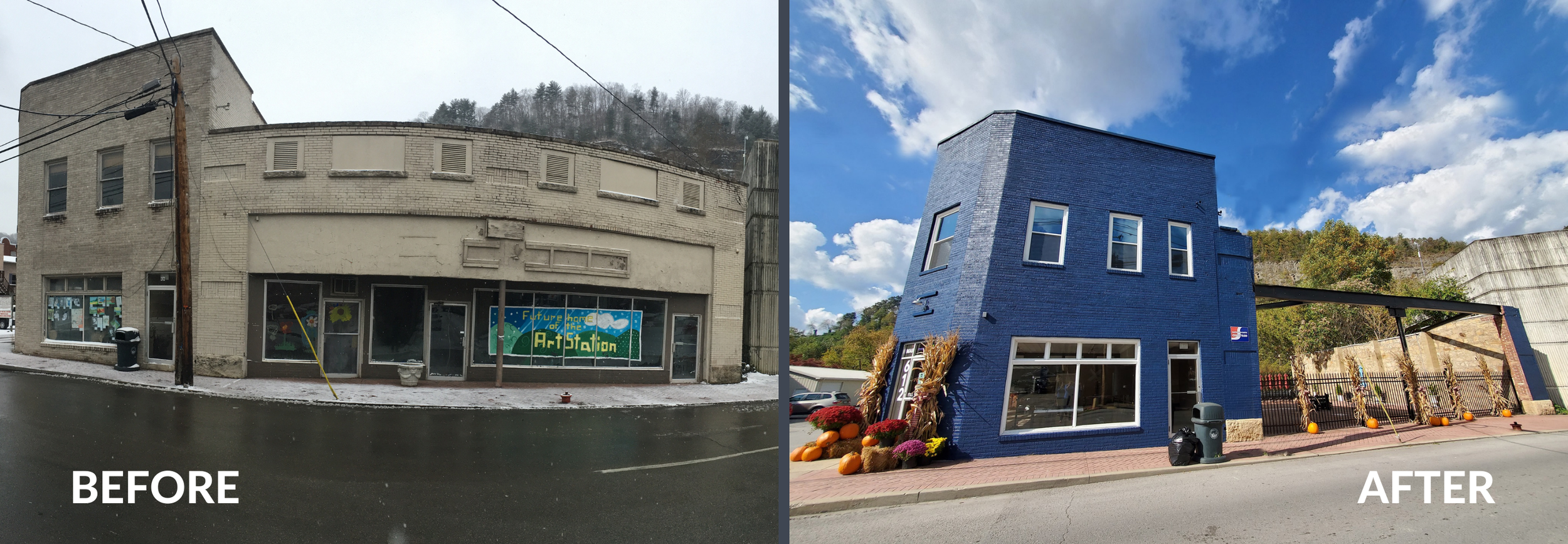
Case Studies
The Pop Up Marion, VA Entrepreneurial Boot Camp
In the wake of the 2008 recession, Marion, VA’s historic downtown was suddenly in deep trouble.
For the previous 14 years, Marion (pop. 5,016 in 2019) had been making steady progress. The upswing began in the mid-1990s when local business owners hired Marion native Ken Heath as the town’s first Main Street director. Ken guided streetscape renovations and helped inspire an arts revival that saw the old high school evolve into a thriving downtown arts center. In 2004, after a long citizen-led effort, downtown Marion welcomed the reopening of its historic Lincoln Theater.
Small Manufacturing Remakes Skowhegan
Rural downtowns are home to a variety of businesses and institutions, but often have a history of manufacturing. Some communities are deliberately creating spaces for small-scale manufacturing operations to return.
The Power of Land Banks in Glouster, Ohio
In Ohio, in 2008, new legislation allowed for the establishment of county land reutilization corporations - also known as county land banks - which is now a model for other states. County land banks are nonprofit organizations whose mission is to strategically acquire properties and return them to productive use. This reduces blight, increases property values, supports community goals, and improves the quality of life for county residents.
Village of Shawnee, OH
The development of West Main Street is growing from the ground up, building on local natural assets, entrepreneurs, investors and community engagement and support. External investment is simultaneously fueling the economy. Public-private partnerships include Hocking College, Black Diamond Development LLC (BDD), Buckeye Trail Association (BTA), Ohio Hill County Heritage Area (OHCHA) and regional nonprofits like Rural Action and ACEnet. The initiative focuses equally on building acquisition/renovation and business development, all aligned around experiential tourism.
Pulaski, VA
Pulaski’s jobs were scarce, and its economy was faltering. Enter two men who saw potential: David Hagan and Steve Critchfield. David bought the Pulaski Yankees in 2014, refurbished Calfee Park, and turned an old warehouse into the popular Jackson Park Inn. Steve saw a beautiful town with dilapidated homes and blighted commercial spaces, yet very unique architecture. He mentored a group of millennials and together they formed West Main Development. They renovated the town’s buildings using initial construction loans, special financing from Virginia Housing, private and community investment, and historic tax credits.
Princeton, WV
Princeton has used a district-wide planning approach. The Mercer Street Grassroots District has monthly events, mixed use buildings, renovated storefronts, two new restaurants, a brewery, coffee shop and lots of foot traffic. The vision is transformational through music, the arts, and food. A local non-profit (RiffRaff Arts Collective), a foundation, state entities, and the City of Princeton have all provided catalytic capital, while repayable capital has come from banks and local residents. There has been a significant investment into public art as a key strategy including murals, open space, and facade improvements.
Downtown Pineville, KY
From 2016-2021, Pineville’s downtown square went from 20% to 100% occupied, and is now filled with a diverse array of businesses and a thriving music venue. Keys to success included: removing barriers to running a business, maximizing community involvement, and developing a shared vision. Using a mix of public and private funds, Pineville’s metamorphosis was built upon layered investments like a municipally funded business incentive packages, grants, bonds, targeted tax revenue, low interest bank loans, and private investments from local entrepreneurs.
Hyden, KY
Hyden, KY was thrilled in 2019 as the S&T Hardware Building, the last unoccupied commercial space in its historic downtown, appeared poised to receive $200K from the Appalachian Impact Fund (AIF) to jumpstart its renovation. As it turned out, those ARC-sourced funds could not be applied to a privately owned building. Hyden pivoted in mid-2021, however, to focus on renovating a different historic property, Mary Breckinridge’s Wendover, whose ownership had been recently donated to a local non-profit. In doing so, Hyden become eligible to apply a portion of the $200K in the ARC’s original investment and thereby score a gratifying win for the community.
Hazard Art Station
After years of planning and pre-development work, the Appalachian Arts Alliance partnered with the City of Hazard to renovate an old bus station into a performing arts center, in spite of a lack of faith from the community. After years of false starts with many plan reiterations, the team struggled to gain buy-in. Most funders thought it was an albatross, and some asked if they could just burn it down and start over. The Art Station is an amazing story of perseverance. When most funders thought the project was going to be a failure, this close-knit team scaled down their plans, gained the support of one key investor, and rallied their community to see the project through completion.
Grafton, WV
While railroad jobs were key to Grafton’s early growth, the loss of hundreds of these jobs in the 1980s was devastating. The Station is a collaborative project that will transform the historic Cohen Building in downtown Grafton into a mixed-use facility with office, retail, co-working, and conference spaces. Unleash Tygart, Inc., a local nonprofit, is the driving force behind the project. When it’s completed, Unleash Tygart will manage the lease contracts and oversee all its operations. Currently 80% of The Station’s projected leasable space is pre-leased.










